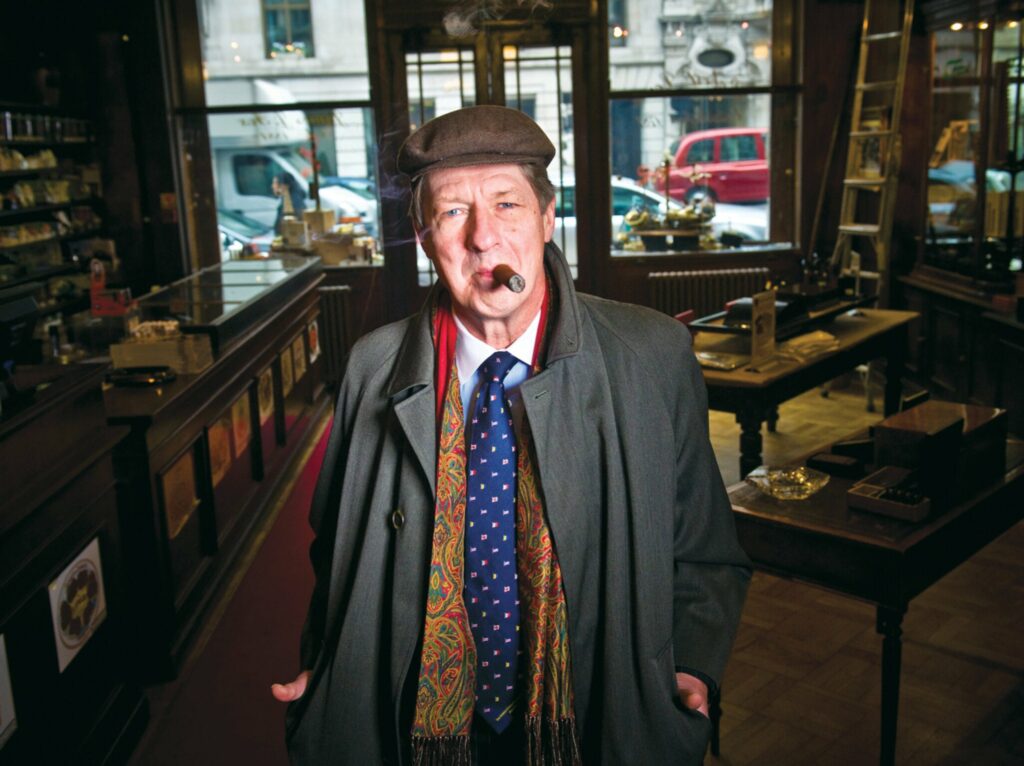Blog Post
Remembering P.J. O’Rourke, one of the greatest writers of his generation
By Jonathon Van Maren
P.J. O’Rourke, one of the greatest American writers of his generation, died of complications of lung cancer at the age of 74 on February 15. He was a hippie in the Sixties, served as editor-in-chief of National Lampoon in the Seventies, and became a foreign correspondent for Rolling Stone in the Eighties. By then, he was a both a libertarian Republican and one of the world’s best-known satirists. The first of his books I ever picked up was Holidays in Hell, a collection of dispatches from conflict zones. It was one of twenty mostly brilliant books including Eat the Rich, Parliament of Whores, and Peace Kills.
Like any aspiring writer, I have the requisite shelf filled with his column collections—I picked up a signed copy of Give War A Chance in a shop in Florida. His essay on the fall of the Berlin Wall was poignant, powerful, and hilarious. Reading it, I wished I could write like that (I still do.) Like G.K. Chesterton, there’s an O’Rourke quote for pretty much everything. On humanitarians: ““Everybody wants to save the Earth; nobody wants to help Mom do the dishes.” On foreign policy: “Wherever there’s injustice, oppression, and suffering, America will show up six months late and bomb the country next to where it’s happening.” On hats: “A hat should be taken off when greeting a lady, and left off the rest of your life. Nothing looks more stupid than a hat.”
One of his best analyses of liberalism is in Give War A Chance: “The second item in the liberal creed, after self-righteousness, is unaccountability. Liberals have invented whole college majors–psychology, sociology, women’s studies–to prove that nothing is anybody’s fault. No one is fond of taking responsibility for his actions, but consider how much you’d have to hate free will to come up with a political platform that advocates killing unborn babies but not convicted murderers. A callous pragmatist might favor abortion and capital punishment. A devout Christian would sanction neither. But it takes years of therapy to arrive at the liberal view.”
As a libertarian, O’Rourke was reluctantly pro-choice—but despised abortion, managing to work disapproving mentions into his work often. When I asked him a question about Donald Trump, for example, he noted that Trump’s popularity “is as mysterious to me as the fact that Joe Biden, as a practicing Catholic, does not seem to think that the subject of abortion is worthy of moral debate.”
O’Rourke was also that rare literary celebrity who was a really nice guy. When I was reviewing his most recent book A Cry from the Far Middle for The American Conservative, he spent nearly an hour talking to me. I’ll cop to being a bit overawed, but he was friendly, witty, and a font of anecdotes about the places he’d been and the people he’d met to illustrate every point.
He was a Republican, but not a partisan. “A million years ago I was in the Soviet Union, and I got to be friends with a Soviet journalist,” he told me with a gravelly chuckle. “One night after we’d been drinking for quite awhile, he turned to me and he said: ‘You are a Republican?’ ‘Yes,’ I said. ‘Actually, I am a Republican. A Reagan Republican.’ He asked [and here O’Rourke made his voice very grave]: ‘Are you…party member?’ It was all I could do to keep from falling off the bar stool. It took a lot to explain why that didn’t have any significance in the United States.”
Like many writers of his generation, he was irritated by the dumbing down of debate. “I don’t want people so immersed in their politics that they can’t have a rational discussion about these things,” he told me. “We need to argue, in some cases rather angrily, perhaps even bitterly. But we need to do that in the context of reason. Reason is pretty much what got us civilization. Preservation of civilization is what makes me a conservative.” As an example, he recalled a debate in which William F. Buckley and Christopher Hitchens loudly argued “about whose argument had an undistributed middle principle. You don’t see much of that lately. Bill is the perfect example of what we do not having going on at the moment.”
(Only once did Buckley lose his temper in public—in his debate with Gore Vidal, and he was embarrassed by that until he died. O’Rourke dismissed this incident. “I met Gore Vidal a couple of times, and the man was exceedingly unpleasant, especially when he was drinking.” That, of course, was always.)
Despite our polarized political moment, the reformed hippie activist took the long view. America, O’Rourke told me, would be just fine. He was speaking as someone whose cousin had lived near the West 11th Street townhouse where some attempted terrorists from the Weather Underground ineptly blew themselves up in 1970; whose girlfriend was in the crowd the day National Guardsmen killed five students at Kent State that same year; and was in a bar at LaGuardia on Christmas Day of 1975 ordering a Jack Daniels when a bomb went off one floor below, killing 11 people. Things are bad right now, he admitted. But nothing compared to the riots, burning cities, and assassinations of his youth.
O’Rourke wasn’t young when he passed away this week, but he wasn’t very old, either. I thought we’d get more writing and more books out of him before the farewell. We are, as Rod Dreher noted on Twitter, diminished by his passing. As we finished our conversation, I told him I’d send him the review once it was published. “Great! I’ll talk to you soon,” he said. He is gone too soon.








